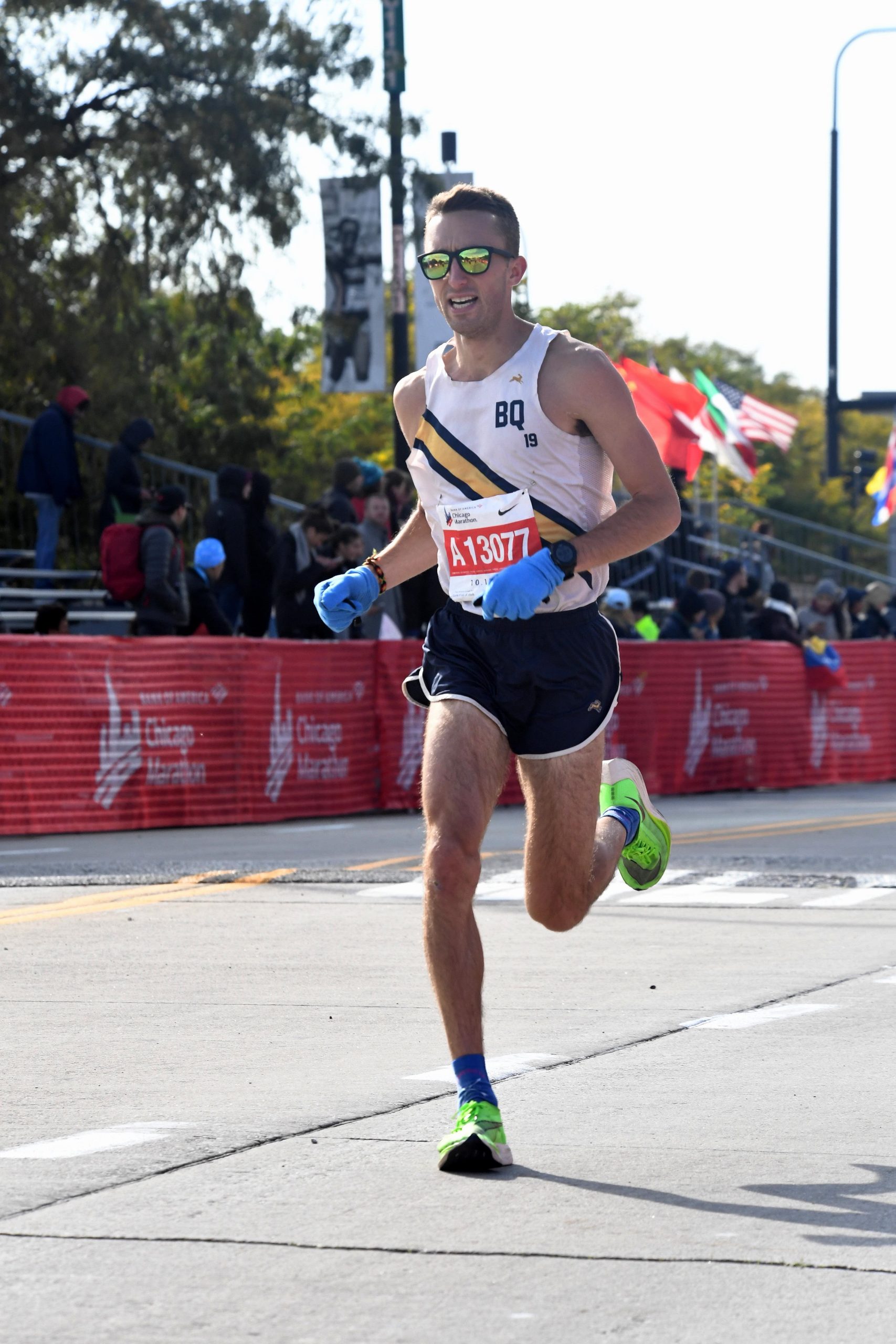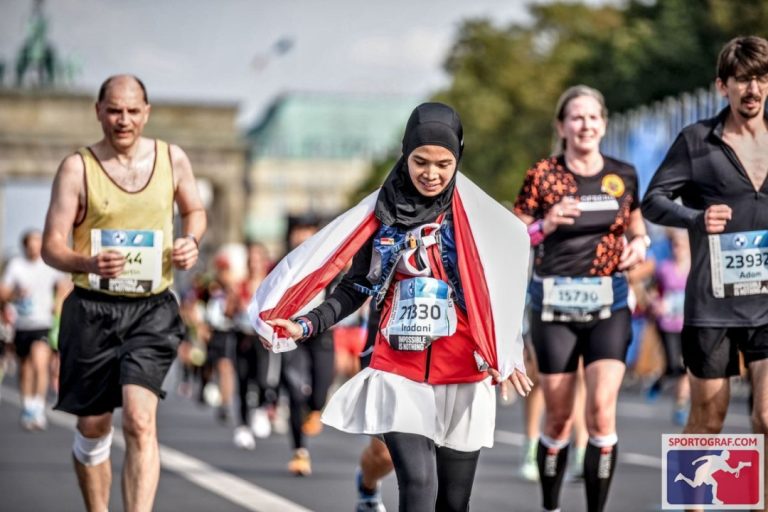What is a Role of a Marathon Running Coach?
A marathon running coach helps runners prepare for races and achieve their goals by designing customized training plans and providing guidance and support throughout the entire training process. Training for a marathon is a long and challenging journey that requires consistent dedication, discipline, and hard work.
For many runners, having the guidance and support of a marathon running coach can make all the difference in achieving their goals and crossing the finish line with confidence and pride. We’ll explore the role of a marathon running coach and what they do to help runners prepare for and succeed in one of the most grueling endurance events in the world.
From designing personalized training plans to providing motivation and accountability, a marathon running coach can be an invaluable asset to any runner looking to take on the 26. 2-mile challenge.
The Importance Of A Marathon Coach
The Importance of a Marathon Coach cannot be overstated. Whether you’re a beginner, intermediate or professional marathon runner, a coach can help you achieve your goals. A marathon coach provides expert guidance to enhance your performance, creates personalized training plans, and provides access to relevant resources to help you achieve your goals. Here are three reasons why having a marathon coach is important for your training.
Enhancing Performance
A marathon coach can help you improve your performance. Coaches can help you identify weaknesses and strengths in your running form and help you improve your running style. They can advise on the right gear, supplements, and training techniques to help you avoid injuries and improve your speed and endurance. With a coach’s guidance and expertise, you’ll be able to train more effectively, reach your target times, and set personal records.
Providing Expertise
Marathon coaches offer expertise that can’t be found anywhere else. They have years of experience and knowledge that they can use to help you reach your full potential. They can create training strategies that are tailored to your specific strengths and weaknesses. Additionally, they can help you understand the importance of hydration, nutrition and recovery strategies that will help you achieve your goals. By having an expert help you fine-tune your performance, you’ll avoid common mistakes that many runners make that can hamper their progress.
Creating Tailored Training Plans
A marathon coach can help you create custom training plans to help you reach your goals. After assessing your fitness levels and running ability, they can recommend specific workouts to build your endurance and improve your speed. Furthermore, they modify your schedules as per the progress to challenge your body in a safe and effective way. With a tailored training plan, you’ll be able to make steady progress towards your goals. A personalized plan takes into account your individual circumstances, including your work schedule, previous running history, and injury history.

Credit: teamrunrun.com
Qualities Of A Successful Marathon Coach
A successful marathon coach should possess several qualities that include being experienced, knowledgeable, a good communicator, and a motivator. They should be able to develop personalized training plans for each runner and keep track of their progress. The coach should be able to give constructive feedback and prepare runners for the physical and mental challenges of a marathon.
A successful marathon coach is someone who trains, guides, and motivates runners to achieve their goals and perform their best during the race. A good coach not only helps runners to train but also provides them with the right support and guidance throughout the marathon journey. Here are three essential qualities of a successful marathon coach:Effective Communication Skills
The foundation of any successful coach and athlete relationship is open and clear communication. A coach must be able to communicate effectively with their runners to ensure that they understand the training schedule, the reasons behind certain activities, and any modifications required to help them improve. In addition, the coach must be a good listener, able to empathize with their runners and understand their concerns and goals.Extensive Knowledge And Experience
A good marathon coach must have extensive knowledge and experience working with runners. They must have an understanding of the physiology and kinesiology of running, as well as the principles of training, nutrition, and recovery. The coach should also have experience working with a variety of athletes with different fitness levels and goals.Motivational Skills
A successful marathon coach should have strong motivational skills. They should be able to inspire their runners to do their best, keep them motivated during training, and provide constructive feedback to help them improve. The coach should also be patient, supportive, and encouraging, and have a positive attitude that helps runners stay focused and motivated. In conclusion, a successful marathon coach must have a combination of effective communication skills, extensive knowledge and experience, and strong motivational skills. They should be able to inspire and guide runners throughout their training and race journey, helping them achieve their personal best and accomplish their goals.How A Marathon Coach Benefits Athletes
Marathon running can be a difficult and challenging task, requiring immense physical and mental endurance. To successfully complete a marathon, having a coach to provide guidance, motivation, and support is highly beneficial. In this article, we will discuss the role of a marathon running coach and their benefits for athletes.
Reduced Risk Of Injury
One of the most important roles of a marathon coach is to ensure that athletes are training safely and effectively. Coaches help their athletes to develop proper running techniques and advise them on how to adjust their training regimens based on their physical capabilities. They also monitor athletes for any signs of overtraining or injury and make necessary adjustments to prevent harm.
Accountability And Support
Running can be a solitary sport, but with a coach, athletes have someone to be accountable to. Coaches establish training schedules and help to keep their athletes on track. They provide support, advice, and feedback throughout the training process, offering guidance on everything from strength and conditioning to nutrition and hydration.
Encouragement Of Proper Rest And Recovery
Many athletes make the mistake of thinking that more training is always better. However, adequate rest and recovery are critical to achieving optimal performance. Marathon coaches help their athletes to understand the importance of rest and recovery, and they encourage their athletes to take a strategic approach to training. They may create periodized training plans that alternately emphasize hard workouts with easy days to give athletes the best chance of reaching their goals.
In conclusion, a marathon coach can play a vital role in an athlete’s success. They provide important guidance and support during the training process, helping athletes to improve their technique, prevent injury, and achieve their running goals. By partnering with a coach, athletes can gain the confidence and knowledge they need to excel in this challenging sport.

Credit: www.facebook.com
Balancing Training And Life Obligations
A marathon running coach plays a crucial role in balancing training commitments with everyday life obligations. They provide personalized coaching and support that helps to optimize performance while ensuring that clients stay healthy and focused. With the guidance of a coach, runners can achieve their goals with greater confidence and ease.
Evaluating Work-life-training Balance
As a marathon running coach, one of the essential roles is to help athletes balance their training and life obligations. Coaches evaluate the work-life-training balance to create a tailored plan for each athlete. This approach ensures that athletes do not compromise their work and personal life while training.Creating Flexible Schedules
The marathon running coach creates a training schedule customized to an athlete’s lifestyle and obligations, providing flexibility to accommodate any unexpected events or special occasions. This approach allows athletes to stay on track with training while fulfilling their other commitments. With a flexible training schedule, life and training obligations become manageable.Providing Tools For Time Management
Time management is essential for any marathon runner, and coaches provide the tools to help athletes manage their time efficiently. A coach may suggest using a training app to track progress, set reminders, and keep track of training schedules, ensuring that an athlete is utilizing the available time to the fullest. The coach also educates athletes about the importance of proper sleep, rest and recovery, and suggests strategies to improve sleep quality and manage stress levels. In conclusion, balancing training and life obligations is crucial for marathon runners who want to succeed while maintaining a stable personal and professional life. A marathon running coach plays a critical role in ensuring this balance, emphasizing flexible schedules and appropriate time management tools to make sure athletes stay on top of all aspects of their lives. By implementing these strategies, athletes can stay focused, motivated, and achieve success.Finding The Right Marathon Running Coach
A marathon running coach plays a crucial role in helping runners achieve their goals. They provide personalized training plans, help with injury prevention, and offer support and motivation throughout the training process. Finding the right coach can make all the difference in achieving success in a marathon.
Finding the Right Marathon Running Coach Finding the right marathon running coach can make or break your running journey. A marathon coach helps you identify weaknesses in your skills, provides a training plan, and encourages you towards your goals. However, with various coaching styles, credentials, and personalities, it’s important to research and assess each coach before committing to one. Here’s what you must consider when searching for the perfect marathon coach. Researching Credentials Marathon running requires a specific set of skills and knowledge, and a qualified coach must have certain credentials. While researching coaches, ensure they hold a certification such as USA Track and Field (USATF) Level 1 or 2 coaching certification. Furthermore, check if they have an extensive running experience, especially in marathons. Also, search for their online reviews, customers’ feedback, and testimonials for proof of their successful coaching career. Assessing Coaching Style Coaching style plays a vital role in achieving your marathon goal. To begin with, coaches use different types of training such as interval training, tempo runs, and long-distance runs. It’s necessary to assess which coaching style will align with your fitness level and marathon goal. Additionally, the coach’s personality, motivational style, and communication should match your expectations. Be open with the coach, and explain your needs and preferences to avoid clashing during training. Interviewing Potential Coaches Once you’ve shortlisted a few coaches, set up an interview to gauge each one’s personality, coaching strategies, and expectations. Start by asking about their experience working with runners with similar goals as you. Ask them to explain their coaching philosophy, how they track progress and adjust plans, and how they communicate with runners. Also, inquire about their availability, schedules, pricing, and refund policies. Final Thoughts In conclusion, identifying the right marathon coach is crucial to achieving your long-term running goals. Ensure to research, assess, and interview multiple candidates before making a final decision. With the right coach, you will get a customized plan, continuous support from an experienced mentor, and lessons for a lifetime of running success.
Credit: www.amazon.com
Frequently Asked Questions Of What Is A Role Of A Marathon Running Coach?
What Is A Running Coach?
A running coach is someone who helps individuals improve their running performance by providing guidance, knowledge, feedback, and motivation through personalized training plans and advice. Coaching services can vary from in-person instruction to online coaching, and can cater to runners of all levels, from beginners to advanced athletes.
How Do You Qualify As A Running Coach?
To qualify as a running coach, you need to complete a certification program, gain experience working with clients, and have a deep understanding of exercise science, sports nutrition, and injury prevention. Additionally, obtaining coaching credentials from a reputable organization such as RRCA or USATF can enhance your credibility in the field.
What Is A Professional Run Club Coach?
A professional run club coach is an experienced individual who leads or trains a group of runners at a professional level. They monitor and guide athletes on running techniques, create training schedules, assess injuries, and offer motivation and support to improve performance and achieve goals.
Conclusion
A marathon running coach plays a crucial role in helping athletes achieve their goals. With their knowledge and expertise, they provide customized training plans, monitor progress, and identify areas of improvement. By working closely with their clients, coaches can impart invaluable insights and motivate them to perform better.
As more people embrace running for fitness or competition, the demand for qualified running coaches is only set to increase.






